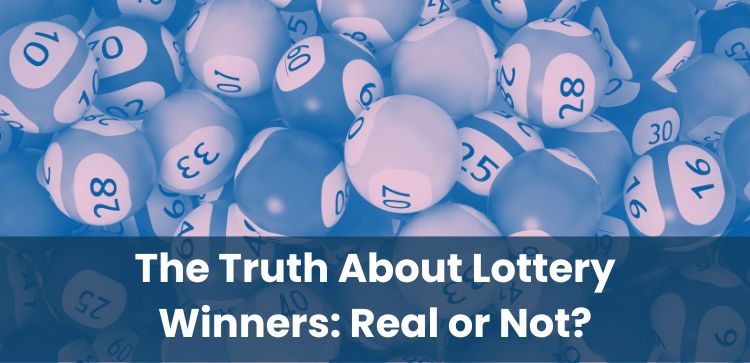
If you have ever wondered who actually receives those large jackpots or what happens after a lottery win, you are not alone. Understanding how the lottery operates and how prizes are awarded could give you a clearer idea of what occurs when someone matches the winning numbers.
Before deciding if you’d like to take part, it might be helpful to know the facts about lottery games. Let’s explore what happens beyond the headlines.
Why Are Lottery Wins Questioned?
Many people find it hard to believe that lottery wins are genuine. The odds of winning the UK National Lottery jackpot are approximately 1 in 45 million for each line played. Because of this, stories of winners may sometimes be met with scepticism.
Due to the rarity of substantial wins, it’s unlikely that the majority of players personally know someone who has hit the jackpot. Millions of tickets are sold weekly, but only a small number of top prizes are claimed. Some winners choose to keep their identities private, so their stories may not be publicly available.
Scams involving false notifications of lottery wins also contribute to doubt. These often take the form of phone calls or emails and are not connected to the official lottery. Official winners may be announced publicly or remain anonymous, depending on personal preference and National Lottery rules.
Understanding How Lottery Payouts Happen
Lottery payouts are determined by a set of clearly defined rules and procedures designed to ensure fairness and transparency. When a player wins, the prize amount is calculated based on the lottery’s structure, which may include fixed jackpots or prize tiers depending on the numbers matched.
Who Gets What, and When?
Once a prize is confirmed, the National Lottery follows strict procedures. The current operator, Camelot, holds a licence from the UK Gambling Commission (UKGC), which regulates all operations.
Retailers generally pay prizes of up to £100 immediately. For certain instant-win games, this limit can be up to £500, but for Lotto draw games, the usual maximum is £100. Prizes above this amount must be claimed through official National Lottery claim centres or by post with proper identification. Prizes over £50,000 require in-person collection with identity checks to confirm the rightful claimant.
If you play online or through the National Lottery app, prizes under £50,000 are typically credited to your account within 24 hours after the draw. Larger prizes require verification before payment. These checks help maintain the integrity of the system.
Smaller prizes are often paid quickly, while larger prizes take longer due to verification. This process is part of what maintains transparency and fairness.
Are Reports of Fake Lottery Winners True?
Some reports mention fake lottery winners, but these usually relate to scams or misunderstandings rather than the official lottery system. The official National Lottery does not send unsolicited notifications about winnings or ask for fees to claim prizes.
Real winners must follow a formal claims process, which includes presenting the winning ticket and proof of identity. Additional checks may be necessary for higher prize amounts. Winners have the option to keep their identity private or share their experience publicly through official channels.
Confusion about fake winners often arises from scam activity or privacy preferences rather than issues with prize payments.
Proof That the Lottery Pays Out
Evidence that the lottery pays out comes from official records and regulatory oversight. The National Lottery website publishes every draw result, the number of winners, and prize amounts.
Since the National Lottery started in 1994, it has paid out over £86 billion in prize money. In the 2022/23 financial year alone, more than £4.7 billion was distributed in prizes.
All significant wins undergo thorough verification before payments are made. Independent audits and regulatory supervision contribute to transparency. Financial reports and official documents are available to the public for those interested in understanding where the money goes.
Should You Play or Not?
In the end, playing is a personal choice. The lottery is a game of chance, with outcomes that can never be predicted or guaranteed.
Some people simply enjoy joining a pool at work or knowing their ticket supports national charities, given that a portion of each sale goes to good causes. For most players, as mentioned earlier, the appeal is more about taking part than expecting to win.
Before you decide if you want to purchase tickets, consider your budget and what you really hope to get out of the experience. The odds of winning the biggest Lotto jackpot are about 1 in 45 million for each line played. Players should remember that the lottery is intended to be a form of entertainment and not as a means of financial gain. Always remember to gamble responsibly and within your means- never spend more than you can afford to lose.
The facts around lottery winners and payouts are clear for anyone willing to look. With strict regulation and transparent processes, the lottery in the UK is designed to be fair and open about what really happens when someone wins.
**The information provided in this blog is intended for educational purposes and should not be construed as betting advice or a guarantee of success. Always gamble responsibly.
*All values (Bet Levels, Maximum Wins etc.) mentioned in relation to these games are subject to change at any time. Game features mentioned may not be available in some jurisdictions.
